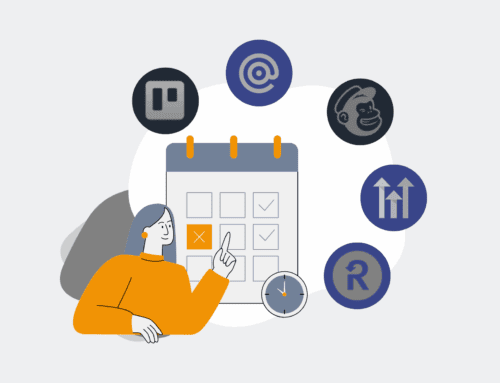What Startups Need to Know About AI Resume Parsing
For a startup, time is the ultimate currency. Every minute spent on a manual, repetitive task is a minute not invested in product development, customer acquisition, or strategic growth. This reality becomes acutely clear in talent acquisition, where the deluge of resumes can quickly overwhelm even the most dedicated HR teams. Enter AI resume parsing, a technology often touted as the panacea for hiring bottlenecks. But what do startups truly need to know beyond the hype to leverage this powerful tool effectively and ethically?
At 4Spot Consulting, we’ve worked with numerous high-growth companies to integrate automation and AI, and our experience reveals that while AI resume parsing offers undeniable advantages, its successful implementation hinges on a strategic understanding of its capabilities and limitations. It’s not just about speed; it’s about making smarter, more informed hiring decisions that propel your business forward.
The Promise and the Nuance of AI Parsing
The core promise of AI resume parsing is simple: to automate the extraction and organization of information from countless resumes, turning unstructured data into structured, actionable insights. For a startup receiving hundreds or thousands of applications for a single role, this can translate into significant time savings and a faster time-to-hire. AI can quickly identify names, contact details, work history, skills, education, and keywords, populating your Applicant Tracking System (ATS) or CRM with rich candidate profiles.
However, the nuance lies in what it *can’t* do inherently, or what it can do poorly if not configured and monitored correctly. Early generations of parsers were often glorified keyword search engines, prone to missing context or over-indexing on buzzwords rather than genuine proficiency. Modern AI is more sophisticated, employing natural language processing (NLP) and machine learning to understand meaning and relationships within the text. Yet, even with these advancements, human oversight remains indispensable. A parsing engine can tell you someone has “experience with Python,” but it cannot fully gauge the depth of that experience, the specific projects, or their cultural fit—elements critical for a startup where every hire profoundly impacts team dynamics and trajectory.
Beyond Keywords: Understanding AI’s True Capabilities and Limitations
Today’s AI resume parsers, when properly trained and applied, can go far beyond simple keyword matching. They can infer skill proficiency based on context, identify transferable skills, and even flag potential career progression patterns. This allows startups to move beyond a static job description and consider candidates who might not match every bullet point but possess the underlying capabilities and learning agility essential for a dynamic environment. For instance, an AI might highlight a candidate’s experience managing complex projects in an unrelated field, recognizing the project management skill itself rather than just industry-specific terms.
Yet, a significant limitation stems from the data it’s trained on. If the training data contains inherent biases—reflecting past hiring patterns that favored certain demographics or educational backgrounds—the AI will perpetuate and even amplify these biases. This is a critical concern for startups aiming to build diverse and inclusive teams. Blindly trusting an AI to screen candidates without understanding its underlying algorithms and training data can inadvertently narrow your talent pool and lead to missed opportunities.
The Startup Imperative: Balancing Speed, Quality, and Ethics
Startups operate at a breakneck pace, and hiring delays can be catastrophic. AI resume parsing offers a powerful solution to accelerate the initial screening phases, allowing human recruiters to focus their valuable time on interviewing and evaluating the most promising candidates. This efficiency gain is not just about saving hours; it’s about ensuring you don’t lose top talent to competitors who can move faster.
However, speed cannot come at the expense of quality or ethical considerations. A poorly implemented AI parser can filter out exceptional candidates due to unconventional resume formats, non-traditional career paths, or simply by misinterpreting nuanced language. Furthermore, issues of data privacy and compliance are paramount. Startups must ensure their AI tools comply with regulations like GDPR and CCPA, and that candidate data is handled securely and transparently. Ignoring these aspects can lead to legal complications, reputational damage, and a loss of trust.
Strategic Implementation: Where 4Spot Consulting Comes In
Integrating AI resume parsing isn’t a simple “install and forget” operation. It requires a strategic approach that aligns technology with your specific hiring goals and organizational values. This is where 4Spot Consulting’s expertise becomes invaluable. Through our OpsMap™ diagnostic, we help startups identify the precise bottlenecks in their talent acquisition process and determine where AI can provide the most impactful automation. We go beyond generic solutions, crafting custom AI and automation systems via our OpsBuild framework using platforms like Make.com, ensuring your parsing engine is trained on relevant data and configured to identify the skills and attributes truly critical for your success.
For example, we helped an HR tech client save over 150 hours per month by automating their resume intake and parsing process using Make.com and AI enrichment, then syncing to Keap CRM. This transformation allowed their team to shift from manual data entry to strategic candidate engagement, proving that thoughtful integration yields tangible ROI. We ensure that the AI complements your human intelligence, freeing up your team to make the nuanced judgments that only a human can.
The Future is Hybrid: AI as an Amplifier, Not a Replacement
Ultimately, AI resume parsing should be viewed as a powerful amplifier for your talent acquisition efforts, not a replacement for human judgment. For startups, it’s about building a hybrid system where AI handles the heavy lifting of data extraction and initial screening, while your team focuses on relationship building, in-depth evaluation, and cultural alignment. This balanced approach ensures that you leverage technology for maximum efficiency without compromising the critical human elements of hiring that define successful startup growth.
By understanding AI’s capabilities, carefully mitigating its risks, and integrating it strategically, startups can transform their hiring processes, find exceptional talent faster, and dedicate more time to what truly matters: building their business. We believe in harnessing technology to eliminate low-value work, allowing your high-value employees to focus on strategic outcomes. This principle is at the heart of our automation and AI consulting for high-growth companies.
If you would like to read more, we recommend this article: The Intelligent Evolution of Talent Acquisition: Mastering AI & Automation









